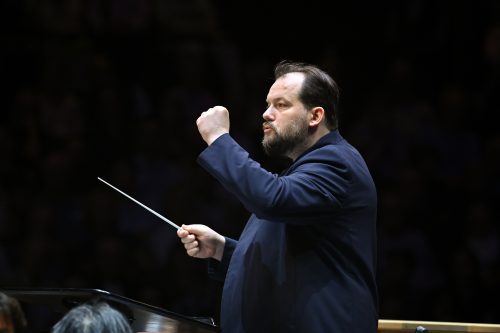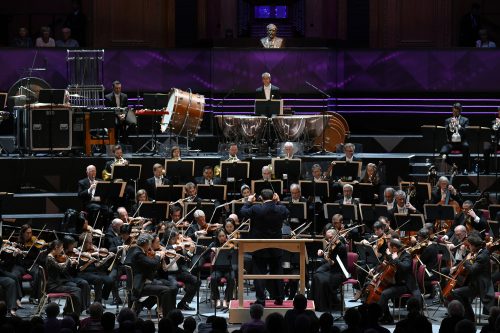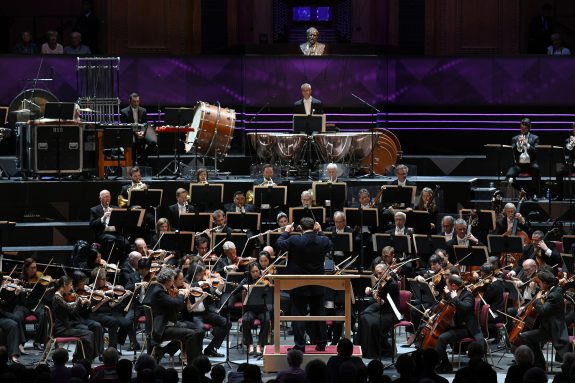 United Kingdom Prom 52 – Adolphe, R. Strauss, Prokofiev: Boston Symphony Orchestra / Andris Nelsons (conductor). Royal Albert Hall, London 25.8.2023. (JR)
United Kingdom Prom 52 – Adolphe, R. Strauss, Prokofiev: Boston Symphony Orchestra / Andris Nelsons (conductor). Royal Albert Hall, London 25.8.2023. (JR)

Julia Adolphe – Makeshift Castle
R, Strauss – Death and Transfiguration, Op.24
Prokofiev – Symphony No.5, Op.100
I must admit I had neither heard of Julia Adolphe nor heard any of her works. Adolphe is a young American composer, a native of New York, now based in Nashville. Her works have so far been heard chiefly in the United States. This was the European premiere of her short (thirteen-minute) composition entitled Makeshift Castle, consisting of two movements Sandstone and Wooden Embers. The first performance was pre-Covid, at Tanglewood. Adolphe describes the piece as depicting sunset over a lake; exuberant brass and boisterous percussion anticipate the sunset, then the atmosphere becomes more muted and we hear delicate strings, the music evolving quiet awe and a reverence for the sounds of nature. The second movement segues on seamlessly from the first and is more mournful, depicting the fragility of life. The whole piece is tonal and approachable, atmospheric rather than melodic, but ultimately I felt rather wayward. Adolphe did conjure up some lovely exotic sounds (I think I detected the sound of a woodpecker). The work received warm applause; the composer was in attendance.

Andris Nelsons has been at the helm of the Boston Symphony Orchestra for some eight years, and taking account the Covid years where performances were scarce (the orchestra were last in Europe in 2018), it is evident that the partnership has now well and truly gelled. This became more than evident in their fine performance of Richard Strauss’s relatively short tone poem Tod und Verklärung (Death and Transfiguration). The orchestra showcased their considerable talents: the whole brass section is a glory, from the burnished quartet of horns to the trio of crisp trumpets led by Thomas Rolfs and mellow trombones led by Toby Oft. The woodwind had abundant character; I highlight the elegant oboe (John Ferrillo) and glistening flute (Elizabeth Rowe). The rhythmic timpanist (Timothy Genis) also deserves special mention. The sound of the orchestra, even in the quite difficult acoustic of the cavernous Royal Albert Hall, was glorious, lush and thrilling. Nelsons, an ardent Straussian, was in full command and control at all times, never hurried, not micro-managed, and showed us what a masterpiece this work is. The performance was majestic and we were convinced that this orchestra – according to the Boston musical press somewhat adrift before Nelsons took over – has now rightly regained its position as one of the world’s leading orchestras.
This was also confirmed after the interval in Prokofiev’s popular and easy-going Fifth Symphony. Nelsons dissected the dense orchestration with clarity and precision but re-assembled the whole to deliver its monumental effect. The audience could not hold back its premature applause at the end of the magnificent Andante first movement. Nelsons enjoyed the quirkiness of the hugely enjoyable second movement scherzo, the modern discordance in the Adagio and gave the finale plenty of exuberant motoric energy – the denouement was certainly exhilarating. After the musical fireworks, there was no need for (nor did we get) an encore despite the prolonged insistence and vocal exhortations of the Prommers.
John Rhodes
